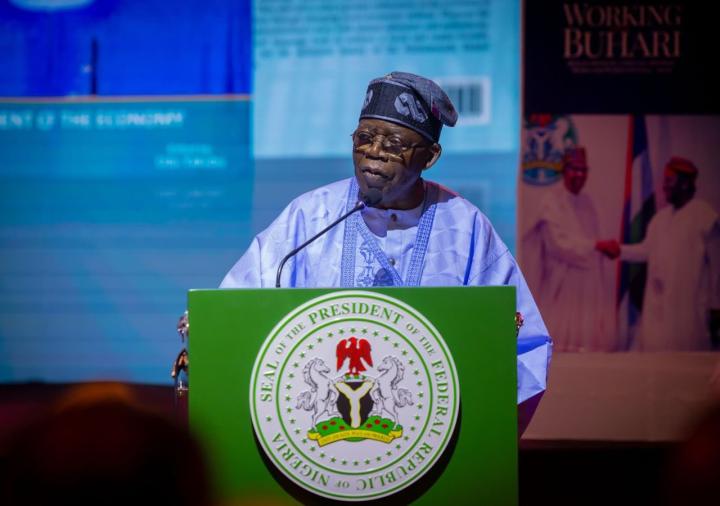President Bola Ahmed Tinubu is scheduled to inaugurate a newly built $400 million crude oil export terminal in Rivers State, a project expected to significantly boost Nigeria’s oil production and export capacity. The facility, described as one of the most ambitious onshore oil infrastructure projects in recent years, is expected to play a crucial role in the country’s efforts to stabilize crude output and increase foreign exchange earnings.
The terminal, situated in the Bonny axis of Rivers State, has been developed to handle large volumes of crude oil exports, with the capacity to accommodate multiple grades of Nigerian crude. According to industry sources, the project will help decongest existing terminals, ease logistical bottlenecks, and enhance efficiency in crude evacuation. The commissioning, slated for the coming days, underscores Tinubu’s commitment to repositioning Nigeria’s oil and gas sector as a driver of economic recovery.

Government officials have emphasized the importance of the new terminal in improving Nigeria’s revenue base. With global oil prices fluctuating and domestic production often hindered by theft, vandalism, and underinvestment, the facility offers a fresh opportunity to improve reliability in crude export operations. The project also aligns with Tinubu’s Renewed Hope Agenda, which prioritizes infrastructure investment as a pathway to national growth.
The Nigerian National Petroleum Company Limited (NNPC Ltd) is expected to play a central role in managing the terminal alongside its private partners. According to industry insiders, the project has been structured to attract foreign investment while ensuring Nigerian participation. This model is intended to strike a balance between leveraging international expertise and protecting local interests.
Stakeholders believe the terminal could help resolve long-standing challenges around pipeline vandalism and illegal bunkering. With enhanced security features and a direct link to producing fields, the facility is designed to reduce leakages and ensure that more crude reaches the international market. For a country that relies on oil for more than 70 percent of its foreign exchange earnings, the expected benefits are significant.
President Tinubu, who has repeatedly called for greater efficiency and transparency in the oil and gas sector, is expected to use the commissioning to highlight his administration’s resolve to restore investor confidence. His government has introduced reforms aimed at improving the ease of doing business, reducing bottlenecks, and ensuring that oil revenues are channeled effectively into national development.
Industry experts say the $400 million investment signals a renewed willingness of stakeholders to put money into Nigeria’s energy sector despite global uncertainties. With the global energy transition and rising demand for renewables, oil producers face increasing pressure to optimize existing assets. Nigeria, which has struggled to meet its OPEC production quotas in recent years, stands to benefit greatly from infrastructure that enhances its ability to reliably deliver crude to the international market.
Oil workers’ unions and local community leaders have also expressed optimism about the project’s economic impact. The construction and operation of the terminal are expected to generate thousands of jobs, both directly and indirectly, while also stimulating local businesses in Rivers State. Improved community relations, analysts say, will be vital to sustaining the facility’s operations and avoiding disruptions that have plagued similar projects in the Niger Delta.
For the global oil market, the terminal could strengthen Nigeria’s position as Africa’s leading crude exporter. While competition remains stiff from countries such as Angola and Libya, improved infrastructure is expected to boost Nigeria’s ability to attract long-term supply contracts with international refiners. Already, reports suggest that several global oil majors are in discussions to utilize the terminal for their export operations.
Observers, however, caution that Nigeria must pair infrastructure expansion with broader reforms in governance and security. The persistence of oil theft, regulatory overlaps, and funding gaps could limit the full benefits of the project. Experts argue that while the commissioning is a positive step, consistent implementation of the Petroleum Industry Act (PIA) and increased transparency in revenue management are critical to achieving sustainable growth.
The inauguration of the Rivers export terminal comes at a time when the federal government is intensifying efforts to boost non-oil revenues through taxation and diversification. Nonetheless, oil remains central to Nigeria’s economic stability, making investments such as this terminal vital in the medium term.
As President Tinubu prepares to cut the ribbon, expectations are high that the new facility will not only enhance Nigeria’s oil export capacity but also serve as a symbol of renewed commitment to reviving the sector. If effectively managed, the $400 million project could mark the beginning of a new chapter for Nigeria’s oil industry, strengthening its competitiveness and providing much-needed foreign exchange to drive development across the country.
Support InfoStride News' Credible Journalism: Only credible journalism can guarantee a fair, accountable and transparent society, including democracy and government. It involves a lot of efforts and money. We need your support. Click here to Donate
